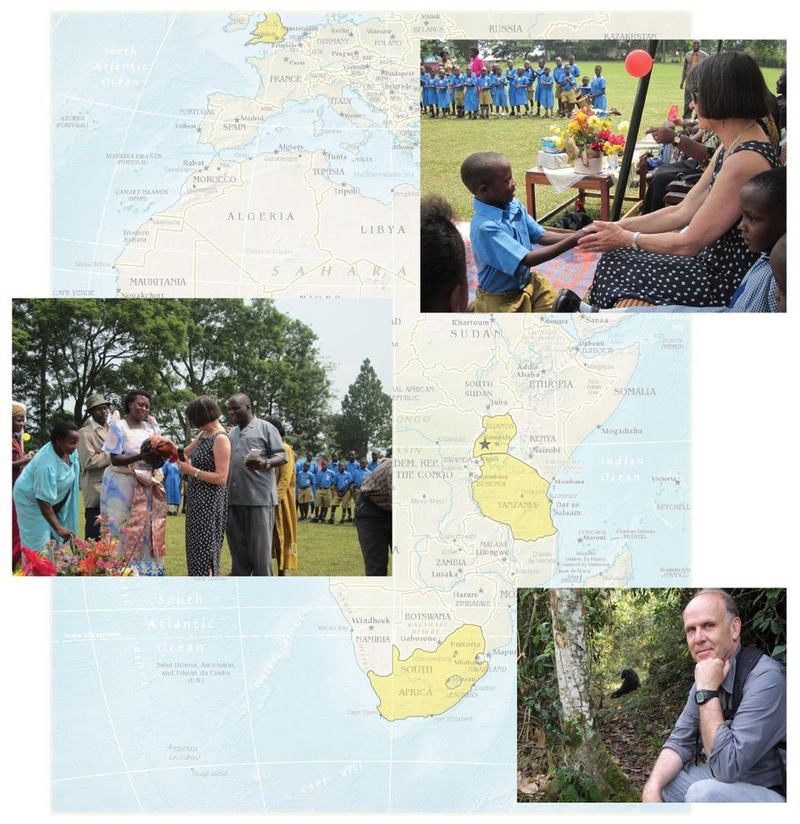Animals as gifts aren’t new to Currier House Masters Richard W. Wrangham and Elizabeth A. Ross, but though they appreciate the sentiment, they don’t quite know what to do with them.
Over the years, Wrangham and Ross have received many animals at ceremonies in Uganda, including a bull three years ago. Ross helped facilitate the installation of electricity at an elementary school in southwest Uganda, and at a ceremony celebrating the advancement last June, she received a gift: a live chicken.
The electricity is just one initiative of the Kasiisi Project, an organization founded by Ross that is devoted to improving education and ecological conservation efforts in Kibale National Park, located in rural western Uganda.
Ross created the project in 1997 in an effort to encourage local Ugandans to preserve the Kibale Forest, where Wrangham has conducted research on chimpanzees for over 25 years.
During the House Masters’ sabbatical last year, when they were based in Cambridge, England, they spent significant time in Uganda, Tanzania, and other countries in order to pursue their research and conservation efforts abroad.
During that year, while her husband wrote about eight research articles, Ross initiated the transformation of the Kasiisi Project from a non-governmental organization largely managed by Ross into a community-based organization run by local Ugandans.
MONKEYING AROUND
In January and February, instead of overseeing Currier House as the Quad was blanketed in snow, Wrangham and Ross lived in the Makerere University Biological Field Station in Uganda. The site is one of the oldest chimpanzee research stations in the world, according to Human Evolutionary Biology Lecturer Zarin P. Machanda, and Wrangham has conducted research there for over 25 years.
Researchers, including Wrangham, have been able to observe many chimpanzees for their entire life, and local Ugandan field assistants observe the chimps on a daily basis.
The research collected over the years contributed to some of the articles Wrangham wrote with graduate students while on sabbatical.
One of these articles concerns juvenile chimpanzees and demonstrates that while males will use short sticks as a weapon, females carry them around—just like young human girls play with dolls. According to Wrangham, this is the first example of a non-human using something as a doll.
This example of “imaginary play,” as Ross referred to it, requires that data be collected over a long time horizon, meaning the forest must remain intact so the chimpanzees can thrive.
LIFE IN AFRICA
While they were not involved in Currier House life, the Masters acted on their deep ties to communities in Africa.
Wrangham’s need for Ugandan locals to conserve the forest provided the impetus for Ross’ founding of the Kasiisi Project, which began only at a single school but is now at 14 schools serving some 9,980 students.
Read more in News
Harvard's Alcohol Policies Under Review













